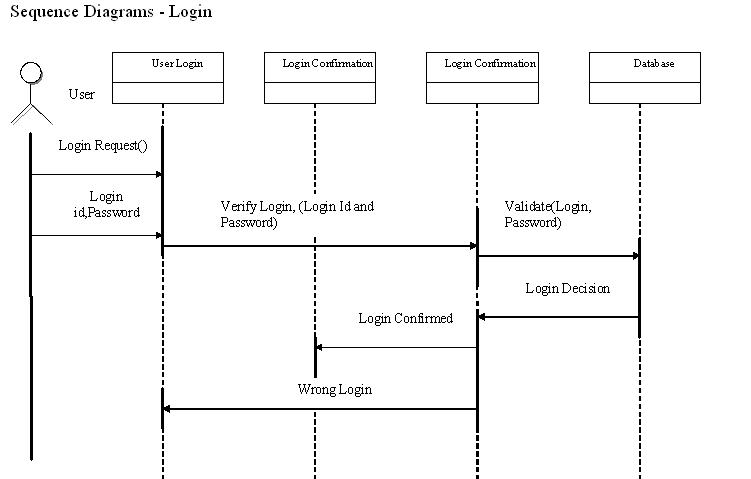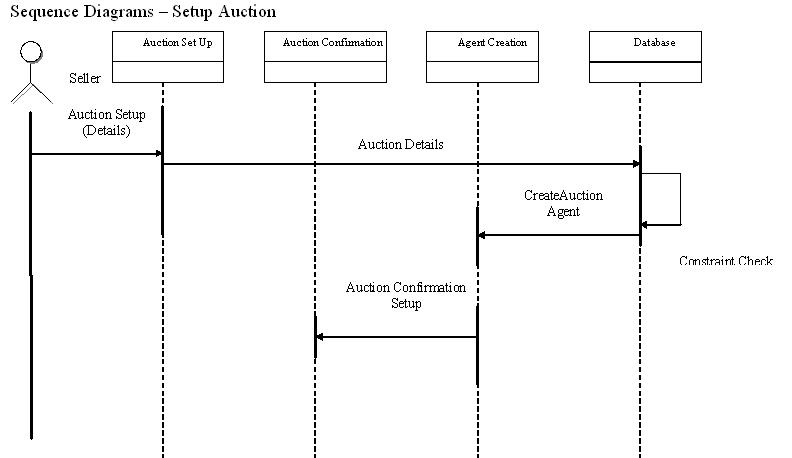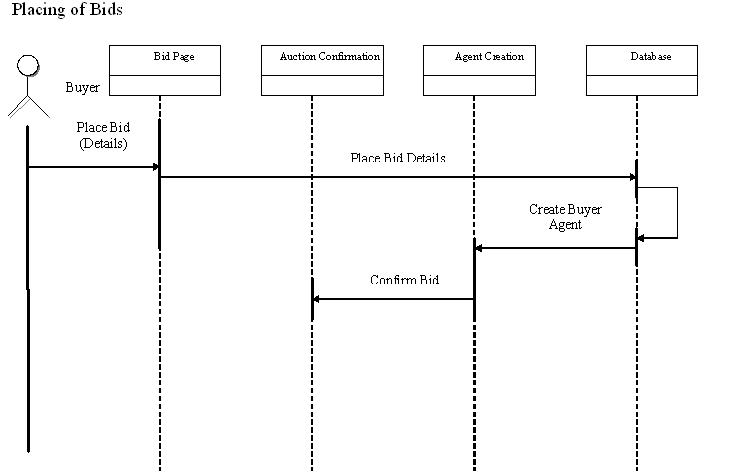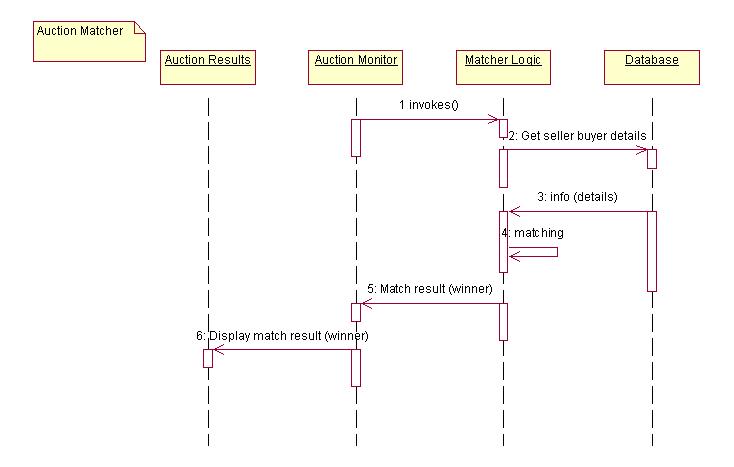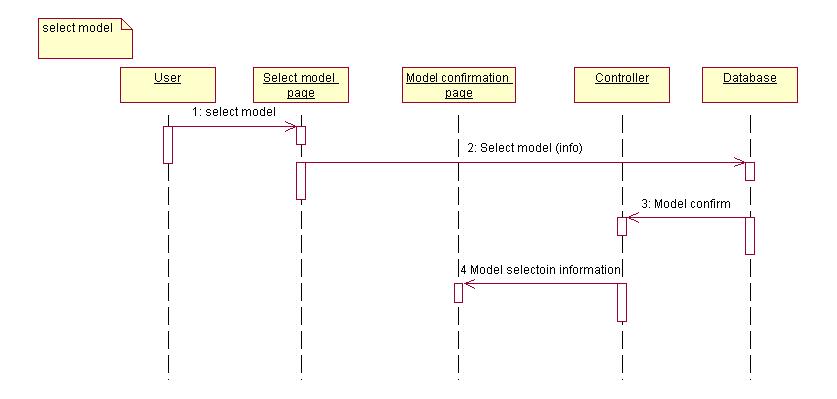 Gopinath
Narendra U.P
Back
Gopinath
Narendra U.P
Back
|
Use Case Model: actors
USE CASE DIAGRAM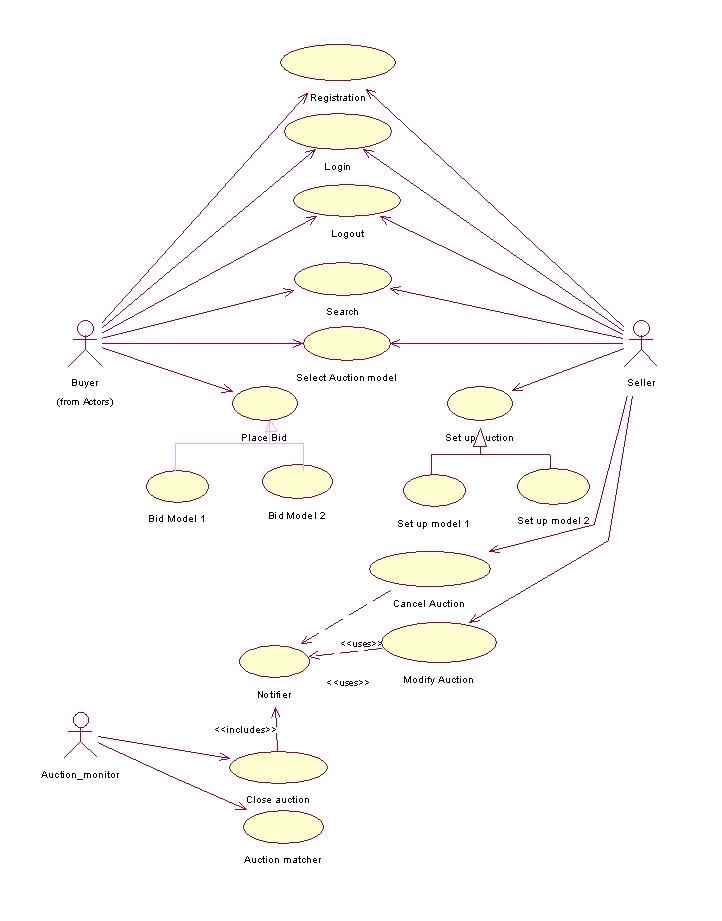
Few important use cases w.r.t three actors:
Use case report: This gives a detailed description of the prioritized Use cases: Auction Matcher: Each auction is monitored from setup to final stage. 1. The Auction monitor checks for any new offers or bid being made. 2. In case the rules for the auction are satisfied the auction monitor performs setup of a new auction 3. The auction is then monitored to see that the rules are being observed to the end of auction . 4. The details of the auction like highest bid, number of bids, etc as well as the monitoring when each auction is in progress is also done. 5. The winners are declared and the notifications to that effect are announced on the system. * The Auction Monitor oversees the agents that are created in the System In Case rules of auction are not satisfied following alternate flow take place 1. The auction is put on hold and reviewed later. In case requirements are not satisfied the auction is force closed and notification issued 2. The auction is force closed / suspended while rules are not being satisfied 3. The auction house must notify everyone that the auction has been closed and the winners announced. SetUp Auction The seller can put up and sell objects in the Auction House . The Seller will access the sell items page and enter details of the item he is willing to sell and auction details like price and auction mechanism. 2. He will be able to revise his offer 3. He can continue to review the status of his offer by looking at the current bid details, and enable him to close the deal immediately if he can, or exit the auction if he is enabled to. 4. After final date deadline or premature closing of deal, the offer is terminated. * in case of a new offer, the agent is created Alternative Flow 1. The validation may report an error and he can either cancel or review details submitted 2. Depending on the business rules he may be denied this option Place Bid The seller can bid for items in the Auction House 1. The Seller will access the bid items page and review details of the item he is willing to buy and auction details like price and auction mechanism. 2. He will be able to revise his Bid 3. He can continue to review the status of his offer by looking at the current bid details, and enable him to close the deal immediately if he can, or exit the auction if he is enabled to. 4. After final date deadline or premature closing of deal, the offer is terminated. * in case of a new bid, an agent is created Alternative Flow 1. He is permitted to bid for items not existing in the system ie; asking for offers. The validation may report an error and he can either cancel or review details submitted 2. Depending on the business rules he may be denied this option Sequence Diagrams for Use cases
|
|
